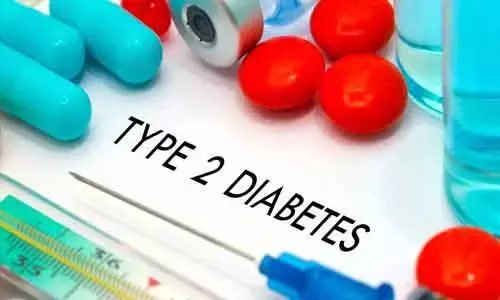- Home
- Medical news & Guidelines
- Anesthesiology
- Cardiology and CTVS
- Critical Care
- Dentistry
- Dermatology
- Diabetes and Endocrinology
- ENT
- Gastroenterology
- Medicine
- Nephrology
- Neurology
- Obstretics-Gynaecology
- Oncology
- Ophthalmology
- Orthopaedics
- Pediatrics-Neonatology
- Psychiatry
- Pulmonology
- Radiology
- Surgery
- Urology
- Laboratory Medicine
- Diet
- Nursing
- Paramedical
- Physiotherapy
- Health news
- Fact Check
- Bone Health Fact Check
- Brain Health Fact Check
- Cancer Related Fact Check
- Child Care Fact Check
- Dental and oral health fact check
- Diabetes and metabolic health fact check
- Diet and Nutrition Fact Check
- Eye and ENT Care Fact Check
- Fitness fact check
- Gut health fact check
- Heart health fact check
- Kidney health fact check
- Medical education fact check
- Men's health fact check
- Respiratory fact check
- Skin and hair care fact check
- Vaccine and Immunization fact check
- Women's health fact check
- AYUSH
- State News
- Andaman and Nicobar Islands
- Andhra Pradesh
- Arunachal Pradesh
- Assam
- Bihar
- Chandigarh
- Chattisgarh
- Dadra and Nagar Haveli
- Daman and Diu
- Delhi
- Goa
- Gujarat
- Haryana
- Himachal Pradesh
- Jammu & Kashmir
- Jharkhand
- Karnataka
- Kerala
- Ladakh
- Lakshadweep
- Madhya Pradesh
- Maharashtra
- Manipur
- Meghalaya
- Mizoram
- Nagaland
- Odisha
- Puducherry
- Punjab
- Rajasthan
- Sikkim
- Tamil Nadu
- Telangana
- Tripura
- Uttar Pradesh
- Uttrakhand
- West Bengal
- Medical Education
- Industry
Metformin use linked to Anemia risk in Type 2 Diabetes patients: study

Metformin is the most widely Prescribed drug for diabetes and Prediabetes globally. It is a first line safe option for Diabetes management.
A recent study published in Diabetes Care has reported that Metformin use is associated with early risk of anemia in individuals with type 2 diabetes, a finding which is claimed to be consistent across two RCTs and replicated in one real-world study.
Anemia is a common finding in individuals with type 2 diabetes. Metformin is the first-line therapy for the treatment of type 2 diabetes in most individuals and the most widely prescribed oral antidiabetic medication. Previous results about whether metformin causes anemia and whether or not this is mediated by B12 deficiency in metformin-treated individuals with type 2 diabetes, has been inconsistent.
Louise A. Donnelly and associates at the School of Medicine, University of Dundee, Dundee, U.K, undertook a study to evaluate the association between metformin use and anemia risk in type 2 diabetes, and the time-course for this, in a randomized controlled trial (RCT) and real-world population data.
For the study design, three data sets were analyzed: two from RCTs, A Diabetes Outcome Progression Trial (ADOPT) and the UK Prospective Diabetes Study (UKPDS), and one from routine clinical data of Genetics of Diabetes Audit and Research in Tayside Scotland (GoDARTS). Anemia was defined as a hemoglobin measure of less than 11 g/dL. Hematological measures were collected at baseline and 3, 6, and 9 years of follow-up.
The findings that emerged were as follows.
- A total of 1,458 individuals (41.8%) had a moderate anemia event during the follow-up period: 745 in current users, 194 in former users, and 519 in never-user.
- In ADOPT, compared with sulfonylureas, the odds ratio (OR) (95% CI) for anemia was 1.93 (1.10, 3.38) for metformin and 4.18 (2.50, 7.00) for thiazolidinediones.
- In UKPDS, compared with diet, the OR (95% CI) was 3.40 (1.98, 5.83) for metformin, 0.96 (0.57, 1.62) for sulfonylureas, and 1.08 (0.62, 1.87) for insulin.
- In ADOPT, hemoglobin and hematocrit dropped after metformin initiation by 6 months, with no further decrease after 3 years. In UKPDS, hemoglobin fell by 3 years in the metformin group compared with other treatments.
- At years 6 and 9, hemoglobin was reduced in all treatment groups, with no greater difference seen in the metformin group.
- In GoDARTS, each 1 g/day of metformin use was associated with a 2% higher annual risk of anemia.
The authors believed that because the mechanisms for metformin-related moderate anemia are unknown, the effects are modest, and the benefits of metformin are proven, avoidance or discontinuation of metformin would not be advocated, even in patients with anemia, but a reduction in Hb in the first few years after initiation of metformin might be anticipated.
"The mechanism for this early fall in hemoglobin is uncertain, but given the time course, is unlikely to be due to vitamin B12 deficiency alone." researchers concluded.
Primary source: Diabetes Care
For the full article click on the link: https://doi.org/10.2337/dc20-1104
Dr Satabdi Saha (BDS, MDS) is a practicing pediatric dentist with a keen interest in new medical researches and updates. She has completed her BDS from North Bengal Dental College ,Darjeeling. Then she went on to secure an ALL INDIA NEET PG rank and completed her MDS from the first dental college in the country – Dr R. Ahmed Dental College and Hospital. She is currently attached to The Marwari Relief Society Hospital as a consultant along with private practice of 2 years. She has published scientific papers in national and international journals. Her strong passion of sharing knowledge with the medical fraternity has motivated her to be a part of Medical Dialogues.
Dr Kamal Kant Kohli-MBBS, DTCD- a chest specialist with more than 30 years of practice and a flair for writing clinical articles, Dr Kamal Kant Kohli joined Medical Dialogues as a Chief Editor of Medical News. Besides writing articles, as an editor, he proofreads and verifies all the medical content published on Medical Dialogues including those coming from journals, studies,medical conferences,guidelines etc. Email: drkohli@medicaldialogues.in. Contact no. 011-43720751


